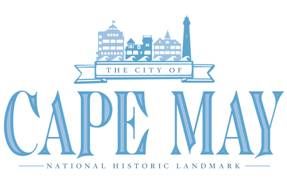CAPE MAY – Two outstanding lawsuits against the City of Cape May have the potential for singling out individual members of its administration and governing body for damages.
At its Dec. 6 meeting, City Council took the step of indemnifying city officials over and above what might be covered by liability insurance.
The lawsuits involve one by Capt. Robert Sheehan, filed just weeks after he was denied continuation as chief of police in 2015.
In similarly worded resolutions, the council felt that there was “good and sufficient reason to provide for the complete indemnification” of the officials thereby transferring any risk of punitive damages to the city’s taxpayers.
The Sheehan lawsuit is part of a controversy that had roiled the city since March 2014 when the council refused to continue Sheehan as chief of police just one day short of the end of his probationary year in the position.
The action was related to a dispute over the use of paid hours by then Lt. Clarence Lear which the city claimed constituted compensatory time not allowed under city policy.
Lear eventually took a settlement that resulted in his retirement after 37 years in the police department.
Lear ran against Mayor Edward Mahaney in November and won an overwhelming victory.
Sheehan, who is still a captain, managed the department after being removed as chief until August when a Chief Anthony Marino, was appointed.
Sheehan’s lawsuit against the city for its actions in removing him is active.
The Carney’s lawsuit accuses the city and Mahaney of wrongfully interfering with its right to do business and for singling out Carney’s Bar for special restrictions.
The suit claims that the triggering incident between the business and the city was a confrontation with Mahaney in September 2014. According to the filing, the mayor overstepped his authority and ordered the bar closed in advance of its normal closing time.
It further claims that the mayor and the city made public statements they knew to be untrue in a council meeting that was available via streaming to any members of the public who elected to watch the proceedings.
Mahaney, who will leave office in January, has frequently been accused of acting beyond his authority as a member of council.
He denies any such allegation. However it was not immediately clear that the votes on council would have been available to pass the resolutions if they waited for the new lawsuit to assemble after the first of the year.
The two incoming members, Lear and Patricia Hendricks, have been critical of the handling of the Sheehan case.
Jerry Gaffney, an ex-mayor of the city, urged the council to postpone any vote on the resolutions and leave the decision up to the new council.
City Solicitor Anthony Monzo explained that this is a procedure that has been used in the past in 2004, 2008 and 2013. He argued that state statutes allow the municipality to extend such indemnification when the potential risks go beyond what the insurance carrier indicates it would likely cover.
As Gaffney continued to press his point and urge delay, a heated exchange with Mahaney resulted in the mayor calling Gaffney “out of order.”
Gaffney then said to Mahaney, “You are out of order,” and Mahaney responded with “You are in contempt.”
That phrase, more likely to be heard in court than at a council meeting, baffled Gaffney. “I have been on governing bodies for 16 years and never heard anyone called in contempt,” he said.
The council then took the step of suspending the public meeting and going into closed session without having the normal public comment period, promising that the public comment opportunity would be available when it returned.
A three-hour closed session meant that council returned to public session long after most members of the public had left.
The final vote on the resolutions was 4-1 on each with Shane Meier voting against both times.
Meier argued that any decision should wait until all discovery was made available and the new council members, who will have to deal with any outcome from the lawsuit, were in place.
“This does not have to be considered now,” he said.
Gaffney and a few others in the public said during the break that they felt the resolutions came up with only one month to go in this council’s tenure simply because of the fear that the votes might not be there to pass them in January.
The wording of the resolutions states the council’s sentiment that all officials “at no time acted in any way which could constitute actual fraud, actual malice, willful misconduct or intentional wrongdoing as related to the litigation.” They also assert that officials “acted at all times within the scope of their responsibility and duty.”
What the resolutions offer officials and members of the governing body is “comprehensive legal defense and indemnification for any and all damages.”
The assigned counsel for the city, Todd Gelfand, was asked by Dennis DeSatnick at the close of the meeting if those resolutions could be “undone” by the new council. His answer, “I don’t know if there is a black-and-white answer to that question as a technical legal matter.”
The only thing that seemed clear is that two lawsuits brewing for many months now playing out in court will be left as open items for the new council when it convenes in January.
To contact Vince Conti, email vconti@cmcherald.com.
Wildwood – So Liberals here on spout off, here's a REAL question for you.
Do you think it's appropriate for BLM to call for "Burning down the city" and "Black Vigilantes" because…








